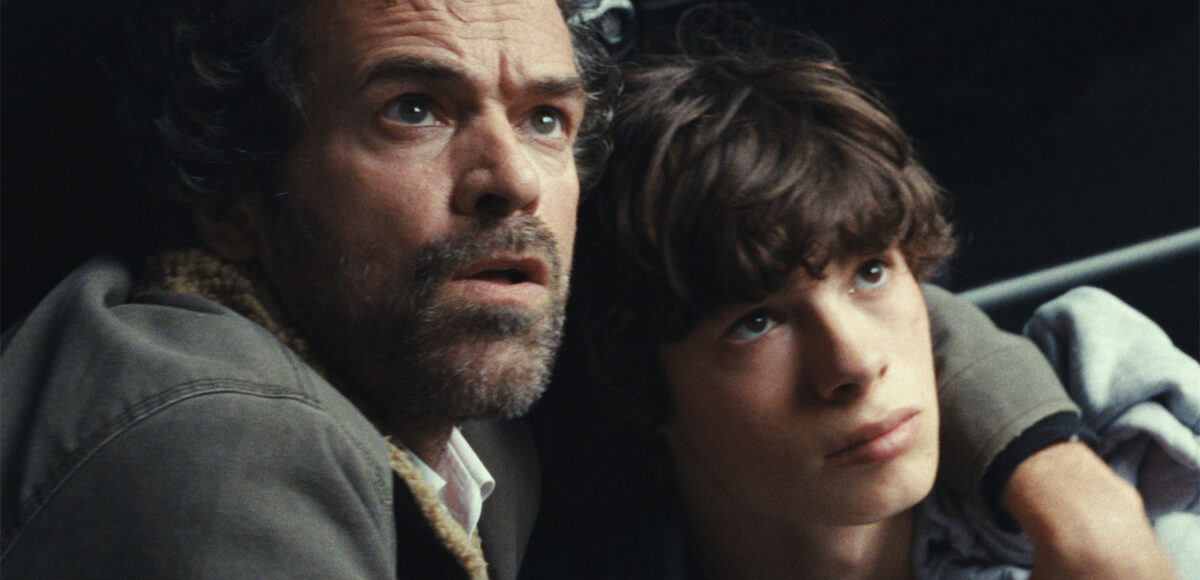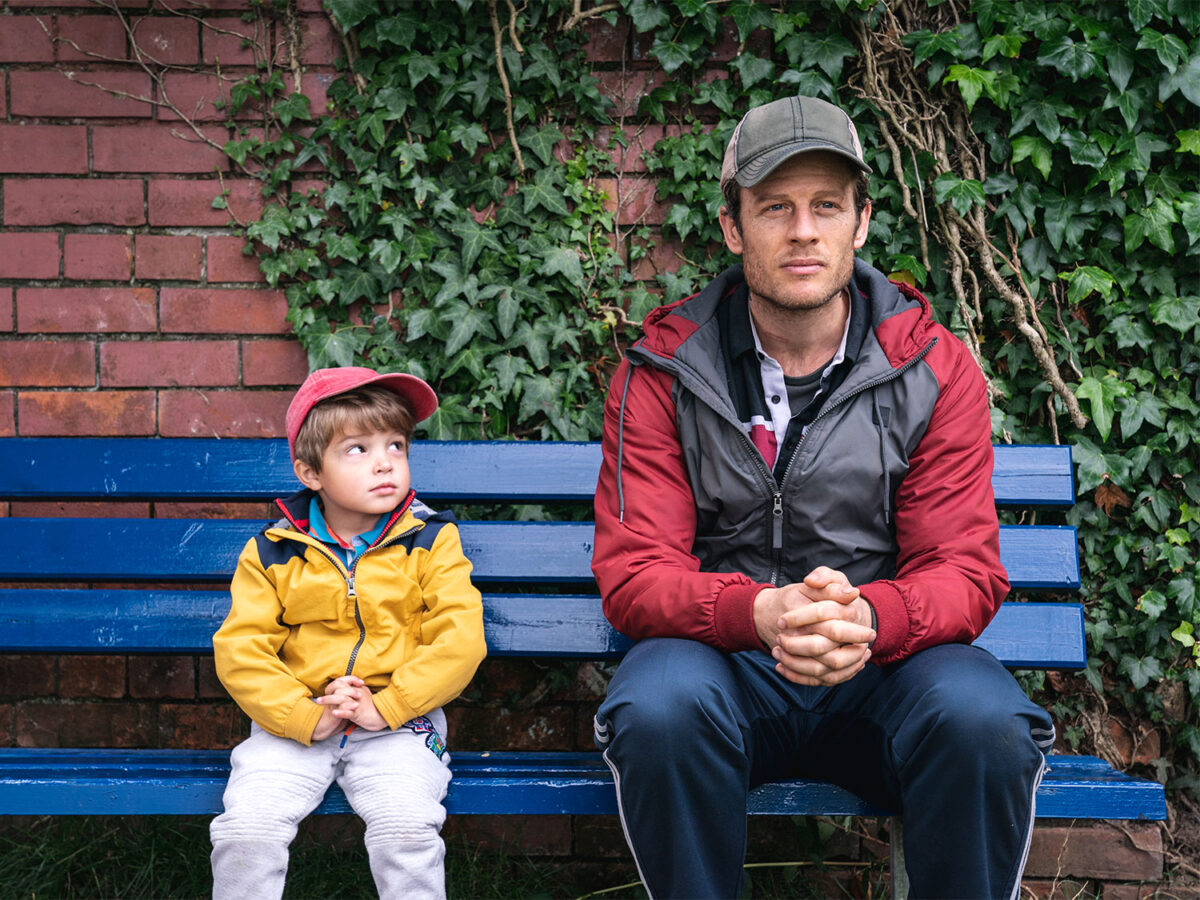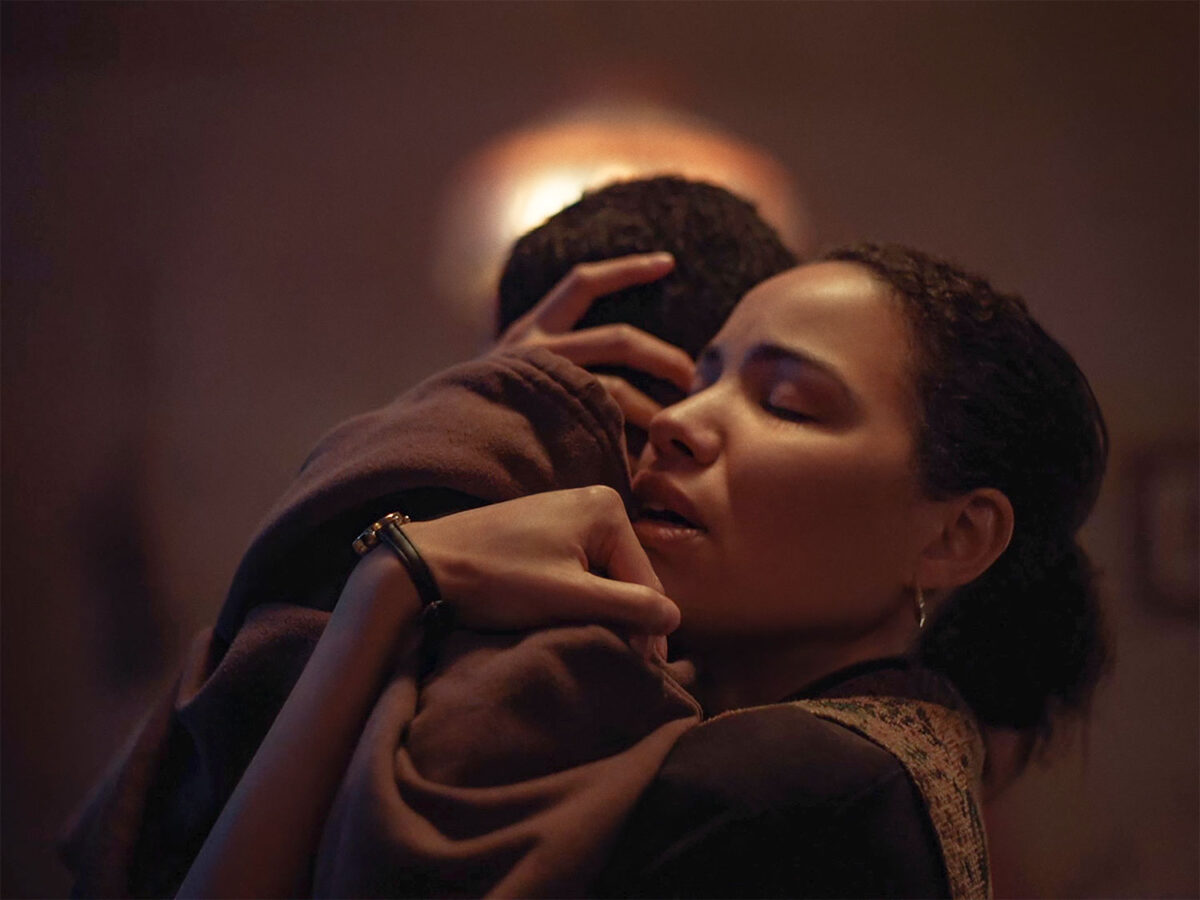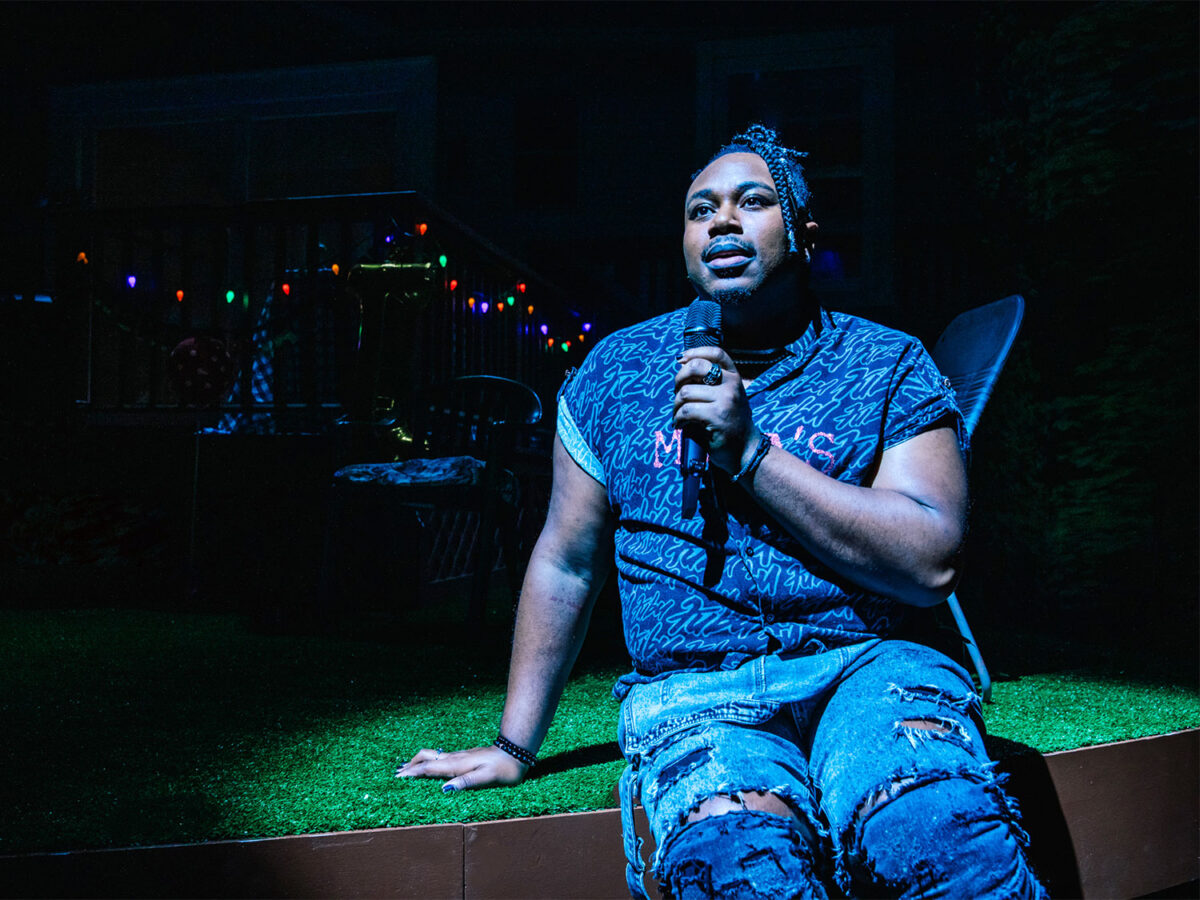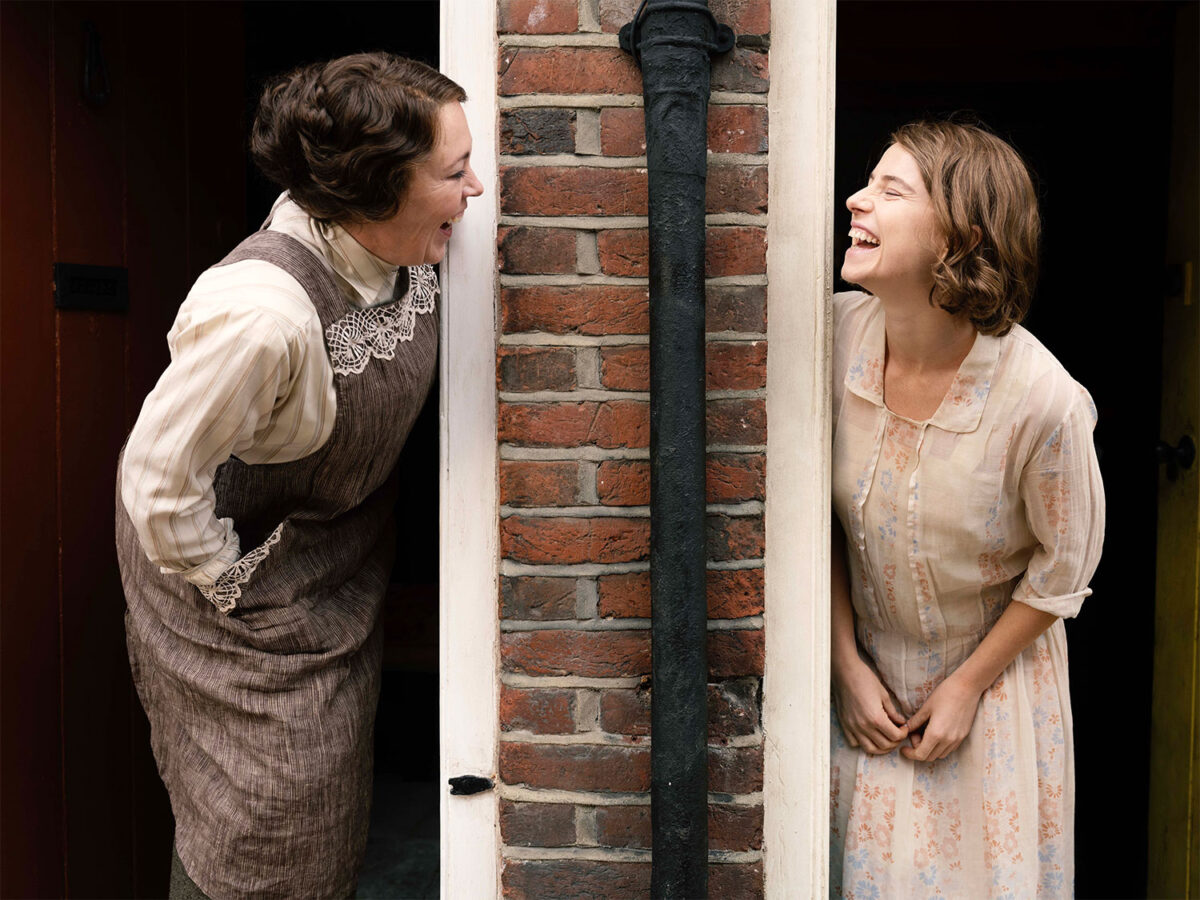“The Animal Kingdom” is a curious work; a mix of many genres, all effectively intertwined and significant. The premise itself touches on fantasy, science fiction, horror and drama. It is present day, one that, for the most part, is very recognizable to us all. Opening on a colossal traffic jam where cars in both directions are attached bumper to bumper as far as the eye can see, a father, François, is admonishing his son, Émile, to stop stuffing his face (and his dog’s) with disgustingly flavored potato chips because of their toxicity and deleterious effects on the body and environment. He then promptly lights up a cigarette and begins nervously puffing away, hypocrisy duly noted. Their bickering, each testing the other’s limits, establishes that this is a solid pairing. Émile, we soon learn, is ambivalent about where they are going. His mother, Lana, is in a hospital and François feels, no demands, that Émile join him on this mission. Suddenly, seemingly out of nowhere, screeching and banging is heard nearby. An ambulance is under attack, its doors pounded from the inside as medics try to contain the escape of their captive, ultimately to no avail. As the doors spring open, a creature, half avian, half man flies forward, wings flapping, mouth screaming and leaps over the cars into traffic.
Mutations have started to appear in humans, manifesting as bestial appendages, some recognizable others not. François’s wife is not really in a hospital but is confined to a clinic where other mutants are housed, as scientists seek to discover the origin and cure for these anomalies. Cheerily letting them know that progress is being made, the administrator has big news. A facility in the southern provinces has opened ahead of schedule and Lana will be transferred there in a few days. François is enthusiastic; they will move immediately. Émile, less so, is not looking forward to transferring schools with only two months left in the school year. It’s hard enough being the new kid, but he’ll be the new kid with a major secret.
Not everyone is as accepting as François. Lana is still the love of his life and he won’t abandon her. That society is less than tolerant of these creatures, as some call them, or beasts, as others see them, is a problem with society not with Lana and others like her. Like almost any other skittish animal, wild or domestic, space, understanding and kindness will often conquer the wildest of them. It’s just that their appearance is so frightful, like monsters from a nightmare. Most human-mutant encounters run the gamut from hilarious to calamitous. For Émile, unafraid, their presence is one that intrigues him.
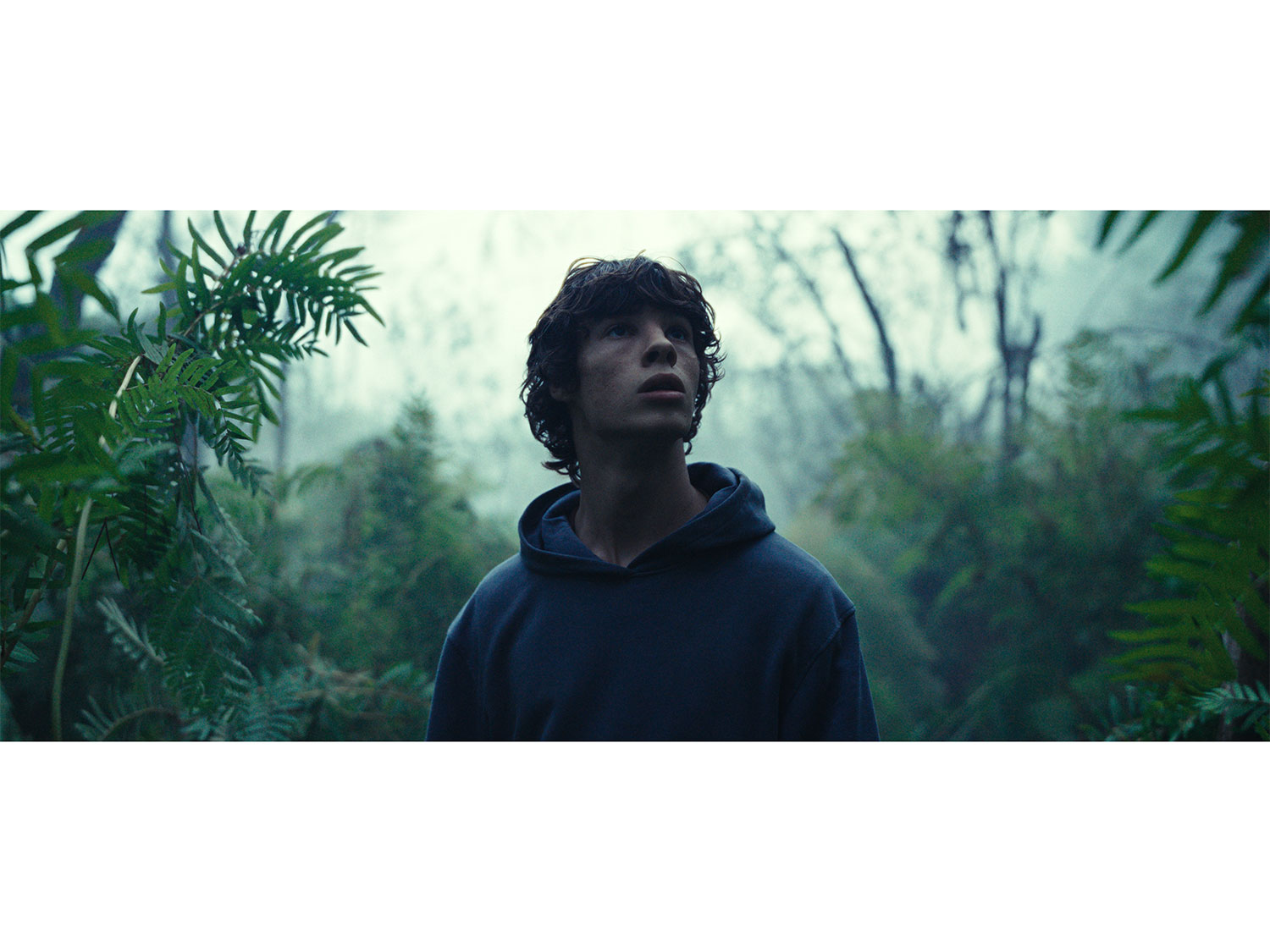
Photos courtesy of Magnet Releasing
François, ever the optimist, has already located a new job and a cozy cottage for them in the South. Émile’s school situation seems promising as the students are eager to welcome this mysterious stranger. But disaster has struck. Nearing the new institutions, the bus transporting Lana and the others from the clinic has crashed on a bridge, sending both the dead and the survivors into the river, most of whom have not been located. The river is soon awash with the dead and the surrounding forest is invaded by a new population of surviving creatures added to those already hiding there. The police on the scene explain that Lana has not been found, but that she should be presumed dead. This, François will not accept. And so begins his stealthy search, one that enlists Émile; stealthy because the police, and the soon-to-arrive military, have sealed off the forest. Most of the townsfolk set up barriers and invent devices to protect themselves from the beasts. Vigilante groups are formed.
Yes, there are encounters and storylines involving normal humans and their mutant cousins, but these are all secondary to the real subject. Director Thomas Cailley, working from a story by Pauline Munier, is most interested in a portrayal of “Otherness.” Whether it is a fear of migrants coming from parts unknown or racism that manifests itself in the hunt and discrimination of those whose appearance is different, “The Animal Kingdom” unearths fears both rational and illogical. François, the most tolerant of humans, doesn’t understand why they can’t adopt the Norwegian way, where the creatures and humans live side by side, apart and yet together. Understanding and tolerance have lessened the distance between them. But this isn’t Norway, it’s France, underscored by one man saying he wasn’t sure if his food was being stolen by a creature or by gypsies, a group commonly demonized as the “other.”
This isn’t necessarily a new theme. In recent years, Guillermo del Toro explored it in his Oscar-winning film, “The Shape of Water.” Del Toro, a master of fantasy and creatures, examined intolerance and hope in his story of a fishlike humanoid caught and brought to a military investigation lab. A young cleaning woman discovers how to communicate with the beast and is determined to save him, at great risk to herself. But even more well known is Spielberg’s Academy Award-nominated classic “ET.” What is “ET” but a story about “otherness?” Frightful to adults, a being to be poked, prodded and experimented on, ET is an instrument of joy and education to the children who adopt and protect him. And much like “The Animal Kingdom,” it is a story about friendship and love.
It is easy to concentrate only on the fantasy aspects of the film, and the creatures are definitely awesome, anthropomorphic, relatable and sympathetic, but, for me what makes this movie stand out is that it is, almost more than anything else, a portrait of family and love. The relationship between François and Émile is one of closeness with an acceptance almost without judgment. They have been through so much together and they are still standing. It is also a warm and empathetic “coming of age” tale with Émile trying to understand the changes that are happening all around him, but always with a father ready to die for him. The attachment between them is palpable, the very definition of unconditional love that grows deeper as they face more challenges. If I have stubbornly refused to reveal plot points, it’s only because you’ll see them coming but need to integrate them into the emotional aspects of this story. Literally anything I would describe would be a spoiler.
“The Animal Kingdom” is a difficult film to watch, if only from the standpoint of understanding what Cailley is trying to say. Stripping away the metaphorical aspects of his story, the racism, the hatred of migrants, the militarism, the ecological aftereffects in a pre-apocalyptic environment, it’s still a story about love, family and tolerance. Stay with it, the emotional end definitely justifies the path it took to get there.
“The Animal Kingdom” was nominated for 12 César Awards (the French equivalent of the Oscars), winning for visual effects, cinematography, costume design, original music and sound, all of which will literally blow your mind. Cailley found his perfect François in Romain Duris, an actor whose emotional palette is practically peerless. Paul Kircher as Émile was a revelation. As an awkward teenager, his gait, gaze and inability to articulate himself make you ache. It is such a realistic portrait of the later stages of puberty that it takes some time before you realize it’s much more than that. The openness of his face, the wide open eyes, this is a boy in transition. The chemistry between Duris and Kircher enhances the filmic relationship.
Much like “Everything Everywhere All at Once,” let “The Animal Kingdom” wash over you. Live in the here and now of the film and worry about the meaning later.
In French with English subtitles. Opening March 15 at the Alamo Drafthouse, a dine-in arthouse cinema downtown and VOD on all major platforms.
Neely Swanson spent most of her professional career in the television industry, almost all of it working for David E. Kelley. In her last full-time position as Executive Vice President of Development, she reviewed writer submissions and targeted content for adaptation. As she has often said, she did book reports for a living. For several years she was a freelance writer for “Written By,” the magazine of the WGA West, and was adjunct faculty at USC in the writing division of the School of Cinematic Arts. Neely has been writing film and television reviews for the “Easy Reader” for more than 10 years. Her past reviews can be read on Rotten Tomatoes where she is a tomato-approved critic.



